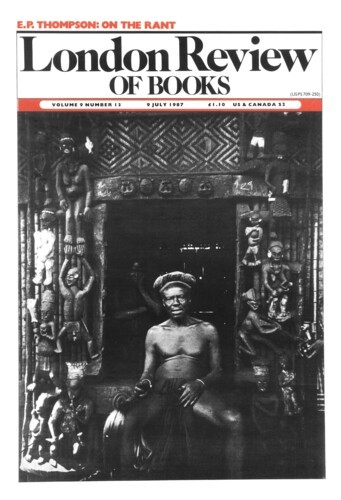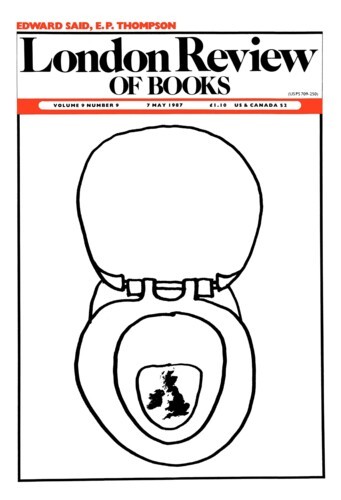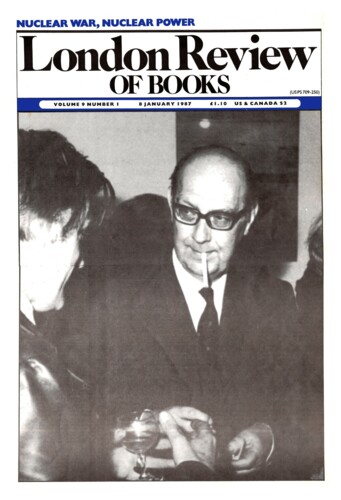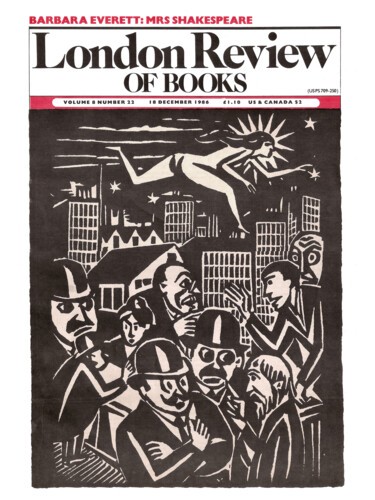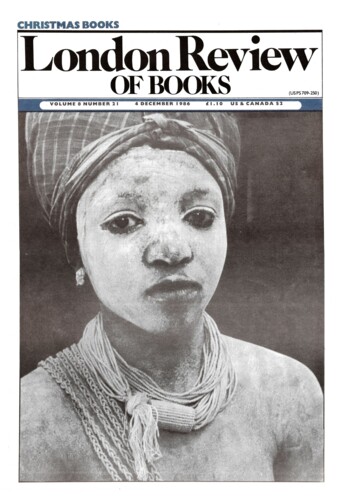On the Rant
E.P. Thompson, 9 July 1987
Professor J.C. Davis has written a book to show that the Ranters did not exist. There was no Ranter sect: no organisation: no acknowledged Ranter leadership. Those alleged to be leaders did not agree with each other on some points of doctrine; or they denied that they were Ranters; or they quickly recanted; or (like Laurence Clarkson, or Claxton, who acknowledged in his autobiographical The Lost Sheep Found that he had been known as the ‘Captain of the Rant’) might have been falsifying their own record for the sake of better setting off their new convictions (Clarkson had become a Muggletonian). Accusations of drinking, swearing and sexual libertinism against the Ranters can be dismissed as the lampoons of opponents or the sensationalism of the ‘yellowpress’. Accounts of Ranter beliefs and practices coming from Quakers, Baptists and other observers are valueless as evidence, being doctrinal polemics or lampoons. Davis demonstrates all this with tedious repetition and a swaggering pretence of rigour. He rounds it off with sixty pages of reprints from the worthless and salacious ‘yellowpress’ anti-Ranter tracts. This is like tying a large lead weight to the neck of whatever weakling kitten of the imagination has survived immersion in the tedium of his text, and sinking it finally to the bottom of the pond.
